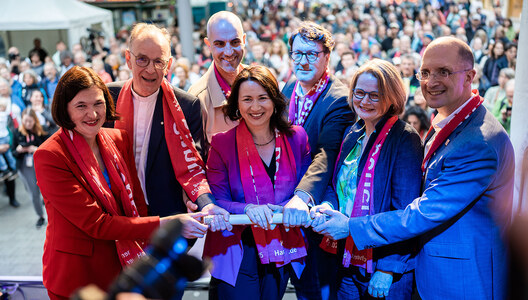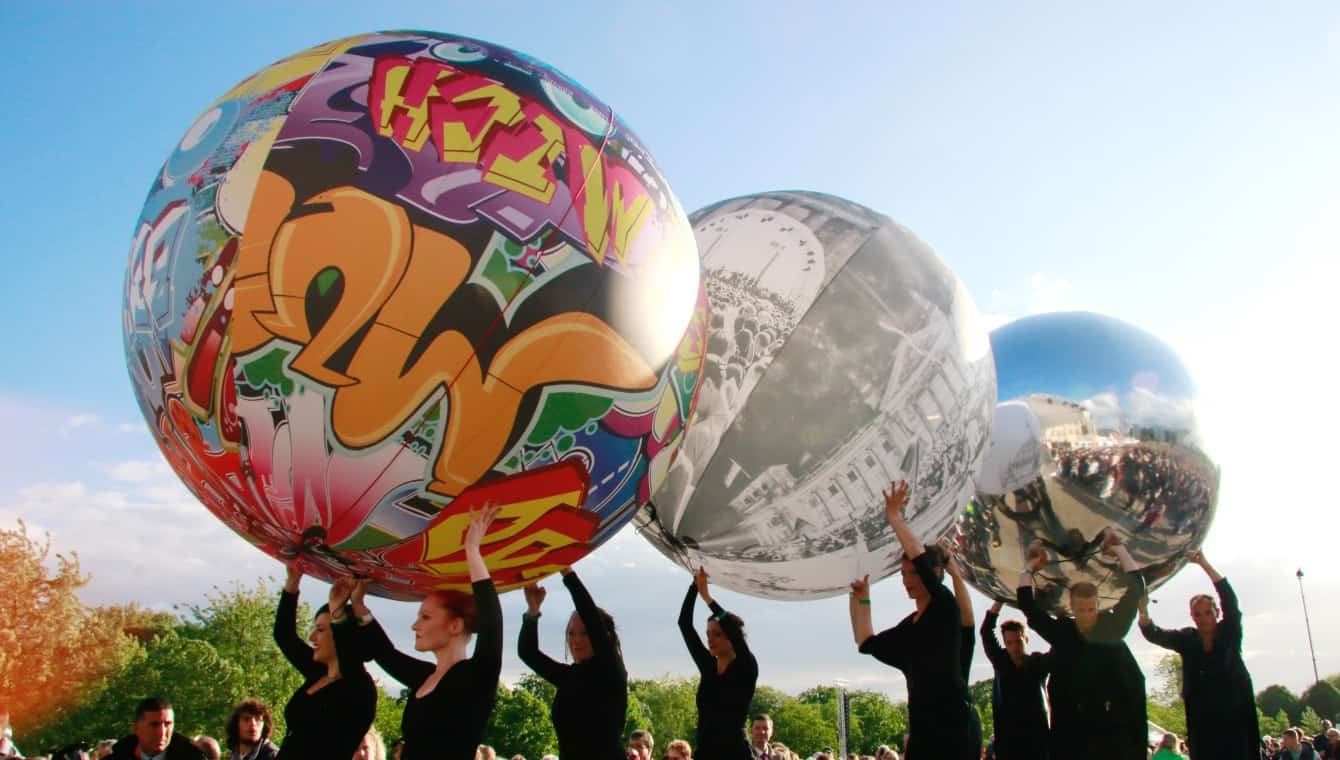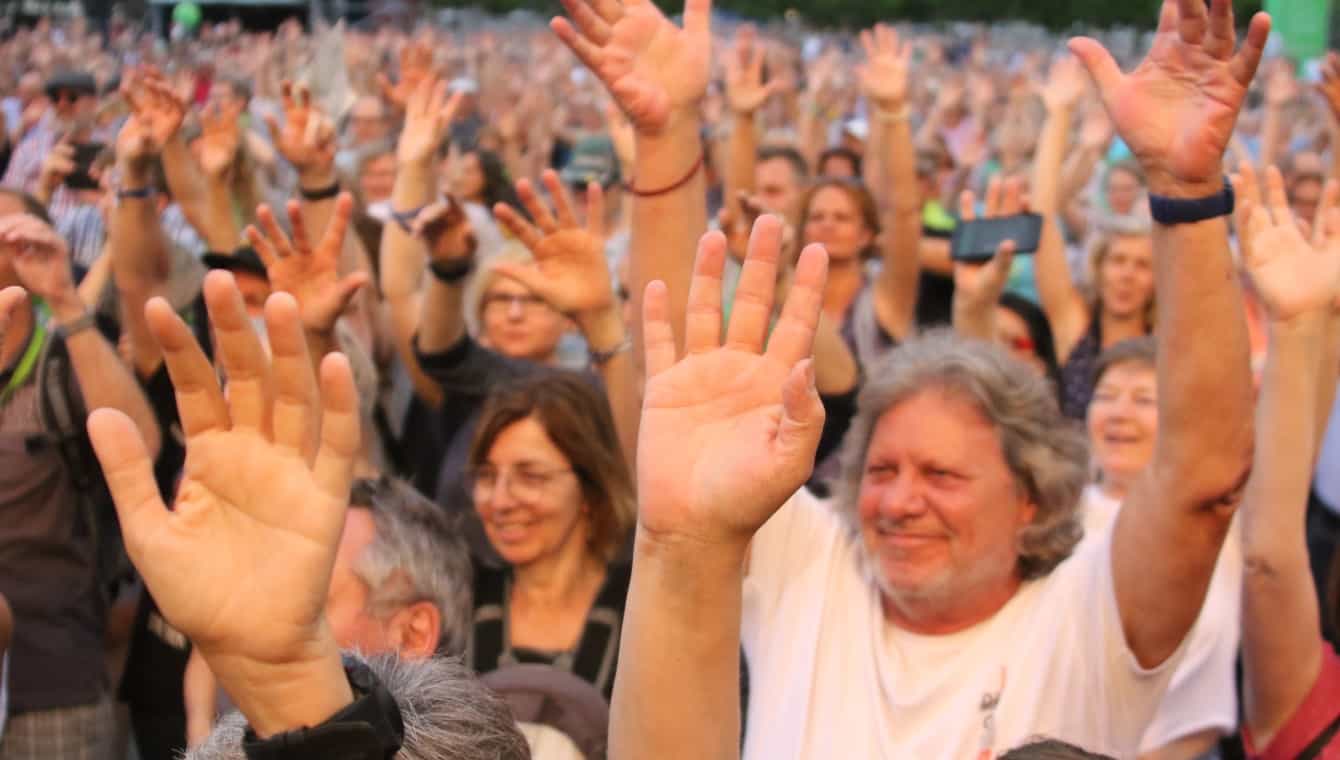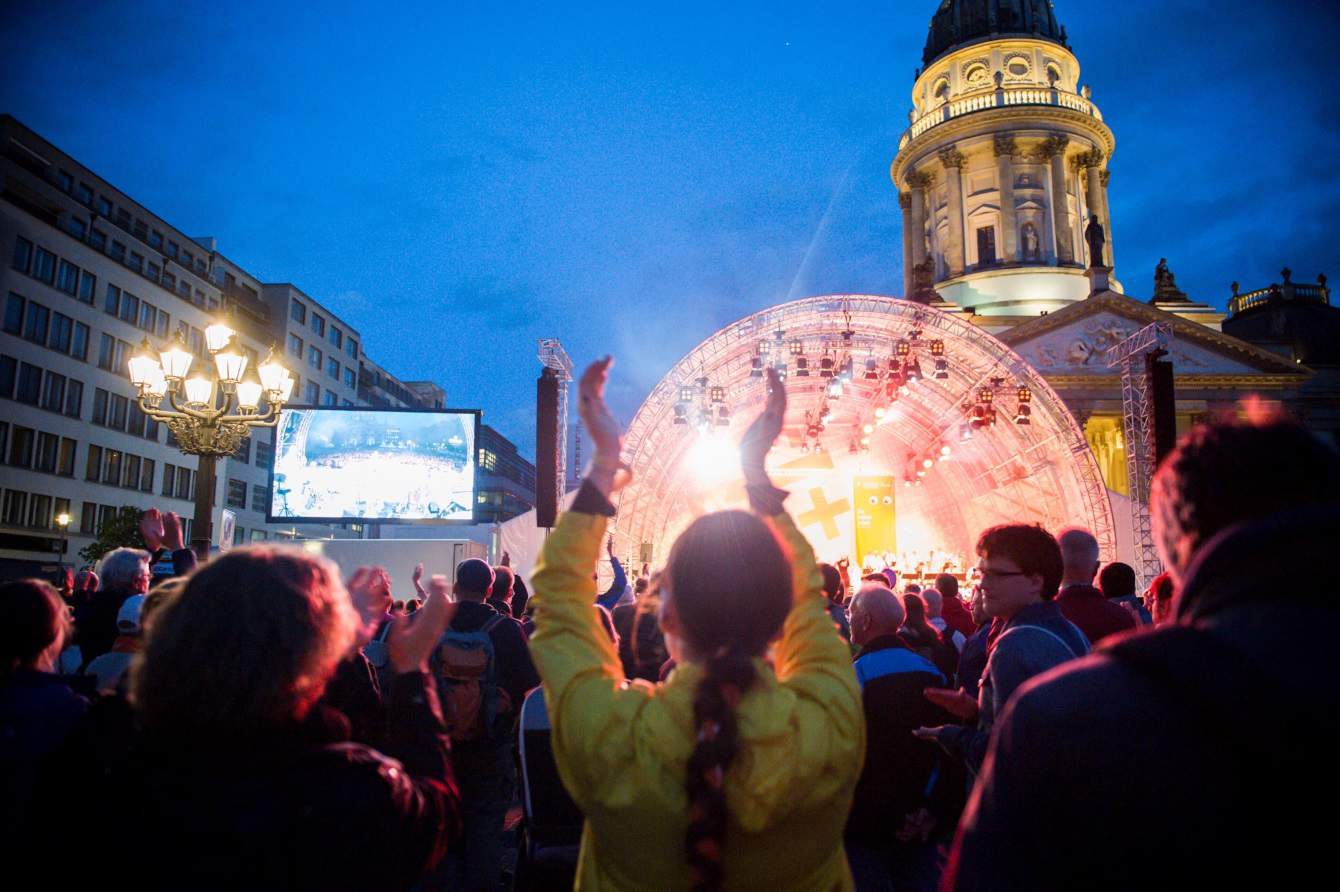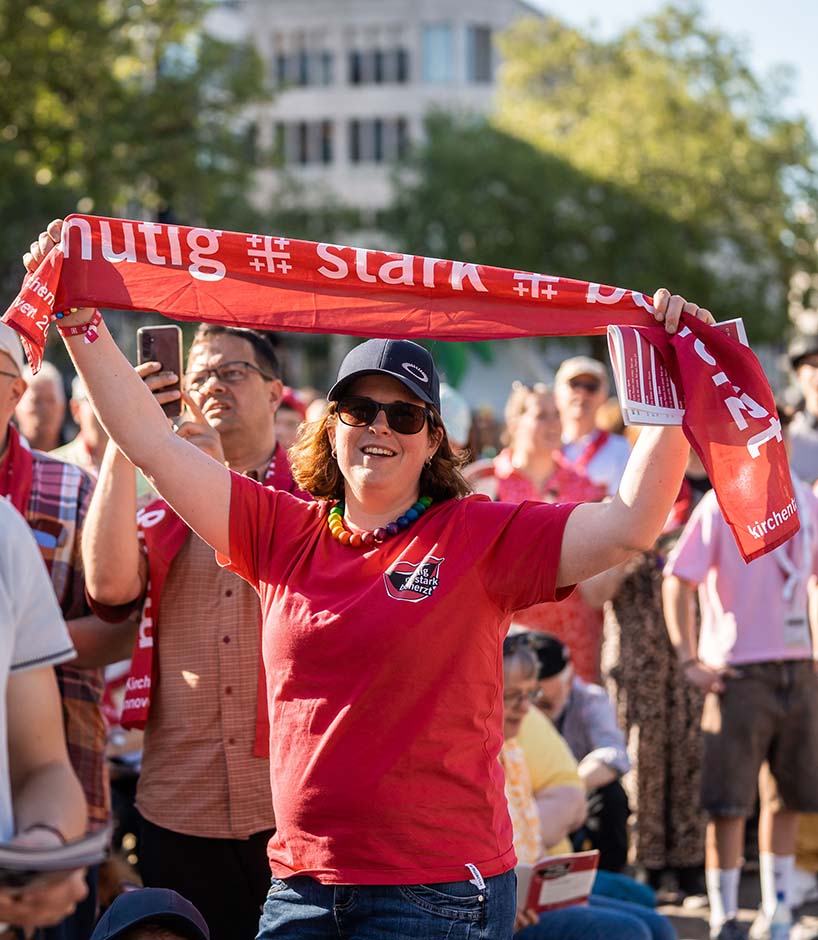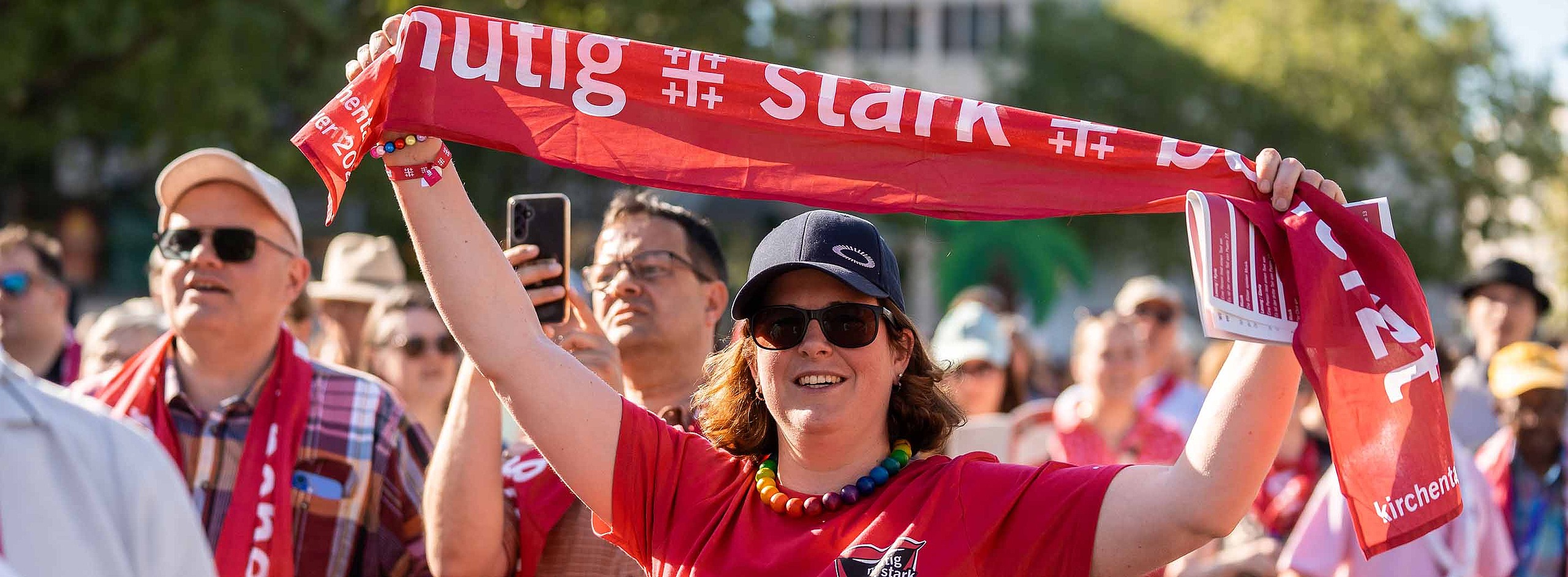Originating in 1949 alongside the establishment of the German Federal Republic, Kirchentag was founded as a movement by Reinold von Thadden-Trieglaff and his associates in Hanover. Emphasizing independence from the institutional Church and a commitment to Christian faith intertwined with societal responsibility, it emerged as an open forum advocating for democracy, human rights, ecumenism, and the fight against discrimination.
Despite the challenges posed by a divided Germany, Kirchentag remained steadfast until 1961, even organizing an event in the divided city of Berlin shortly before the construction of the Berlin Wall. In the ensuing years, while formal Kirchentags were not permitted in the former GDR, courageous Christians in East Germany initiated smaller local gatherings to express their faith publicly. However, the ties between the two movements endured, and following the reunification in 1989, the Kirchentag movements in East and West merged once more.
Throughout its history, the German Protestant Kirchentag has sparked numerous initiatives and discussions, including dialogue between Jews and Christians, the introduction of new forms of worship, and conversations on peace and environmentalism, shaping Germany's societal discourse for decades.
